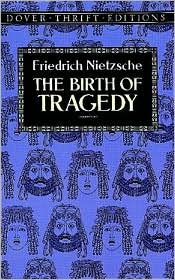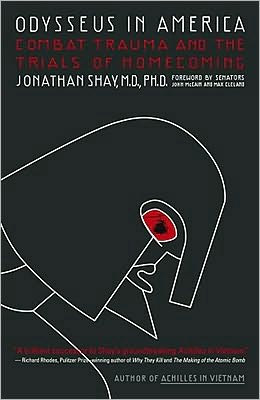Escrituras torcidas (Twisted Scriptures)
This book reveals in detail how Scripture can be twisted to deprive you of the freedom Christ offered to you by dying on the cross.
Search in google:
SPANISH EDITION. This book reveals in detail how Scripture can be twisted to deprive you of the freedom Christ offered to you by dying on the cross.
Escrituras Torcidas \ \ By Mary Alice Chrnalogar Vida Publishers \ Copyright © 2006 Mary Alice Chrnalogar\ All right reserved.\ ISBN: 9780829745047\ \ \ Chapter One \ THE DISCIPLESHIP GAME\ You agree to wait for confirmation from your discipler before making important decisions. This works out to be getting permission.\ Let's start by playing a game. Below are twelve items, six of which you are to pick:\ 1 2 3 4 5 6 7 8 9 10 11 12\ What you don't know is that I have decided I don't want you to choose items 4, 7, or 10. On the other hand, I do want you to take items 2 and 5. The rest are of no consequence to me. What are the chances you will pick the ones I want you to choose and not choose the ones I don't want you to? Not very good, are they? How could I get you to pick the ones I want without telling you? How could I convince you to make my choices become your choices, but make you think that you decided?\ That is easy. I could play a manipulative discipleship game. First, before you started the game, I would teach you that, although this may be your first time playing, I have played this game a lot. In fact, I have spent so much time in prayer and study that God now inspires me to know the best choices (for you). Then we would begin to play. After two choices, I would tell you that it is God who wants us to agree on each choice. This, I would tell you, is the kind of spiritualunity the Bible teaches. With this in mind, you would proceed with the remaining choices.\ Suppose in those six choices, you only stumbled on one of the three items I did not want you to take. This is the only time I had to tell you that I did not agree with you. When you were on your last choice and you still hadn't picked item 5, I shared with you that God revealed to me the superiority of item 5. So you took it last. Five out of six times you got your choice, but you also benefited from my "divinely inspired wisdom" to make a good last selection.\ You feel as though you are making up your own mind. You feel neither coerced nor controlled. In fact, you appreciated the help you got. In the end, however, I got what I wanted without your knowing it; and, of course, I was the one who said you had 12 choices and who directed you to select only six. I set up the rules of the game.\ Abusive discipleship is played approximately the same way. Control over people is disguised as agreement with a discipler who, you are told, has your best interests at heart. Unlike the game, the choices are not trivial, but are more likely to be important (e.g., whom to marry, what vocation to pursue, and where to live). Unlike the game, however, abusive discipleship results in unnecessary fear, shame, and guilt-and, most importantly, the rules of abusive discipleship are not Biblical rules.\ In his letter to the Colossians, Paul warns of the foolishness of man-made rules: "Such regulations indeed have an appearance of wisdom ... but they lack any value in restraining sensual indulgence." The Apostle also admonishes us, "Do not let anyone judge you by what you eat or drink, or with regard to a religious festival, a New Moon or a Sabbath day" (Col. 2:8-23).\ Leaders in most discipleship groups will admit that their rules are different than those in most churches. In truth, they feel they are closer to what an authentic Christian experience should be. I have heard many people compare the discipleship groups they were in to monastic orders or the army. Some disciplers even draw the comparison: "We are God's Green Berets!" When people are inducted into such orders or join the military, they know what they are getting into and know what the rules will be. Ask yourself: When did you agree to the rules? When did you find out what the rules were?\ The rules of abusive discipleship are not evident in the beginning. What is initially obvious is a great display of personal attention, love, and caring. This is what people usually (and understandably) find so attractive about such groups. They will call you even when no one else does; they will invite you out to dinner; they will tell you that they care. They will also tell you that you can grow much faster spiritually by having a discipler who is wiser (than you) in the Lord. They will impress upon you all the wonderful benefits of being a part of such a program. They also will teach you that Jesus did this exact same thing with His disciples. You will be assigned a "buddy" to stand alongside, who will be your constant friend. It is often true that, with spiritual guidance, we can grow much faster. The problem is that in some discipleships, spiritual growth accelerates for a short yet seductive period before being restricted by controlling techniques.\ As your relationship with the abusive discipler develops, you find out there are rules-actually more rules than you might have expected. By contrast, there won't be hidden rules in healthy discipleship. From the beginning, the non-abusive discipler will lay out what is expected from you without intentionally withholding certain rules or ideas.\ You may be led to believe that any violation of the discipler's rules can be a sin. This is part of the deceptive and hidden agenda built into the program. You begin to believe that it is actually sinful to not follow the rules after you have accepted the discipler as your buddy. After you become involved in a domineering program, you frequently discover it's considered sinful (or at least backsliding in your spiritual development) to break your commitment and end the relationship.\ In a controlling discipleship, there are other ideas that are hidden from you. Aberrant discipleship teaches new meanings for such words as obey, submit, die to self, and brokenness. Their meanings are altered from the true Biblical understanding of these concepts. Abusive disciplers expand the meanings far beyond what the Bible teaches, to imply that anytime you don't want to accept the advice of a leader, you are likely not sufficiently obedient, submissive, broken, or dying to self. These non-Biblical definitions are usually concealed until the abusive disciplers feel you are trustworthy enough to be given their teachings in full.\ ABUSIVE DISCIPLESHIPS MAKE IT A SIN NOT TO FOLLOW THEIR RULES!\ The Bible offers us these examples of sin:\ "the cravings of sinful man, the lust of his eyes and the boasting of what he has and does" (1 John 2:16)\ "lovers of themselves, lovers of money, boastful, proud, abusive, disobedient to their parents, ungrateful, unholy, without love, unforgiving, slanderous, without self-control, brutal, not lover of the good, treacherous, rash, conceited, lovers of pleasure rather than lovers of God" (2 Tim. 3:2)\ "bitterness, rage and anger, brawling, and slander, along with every form of malice" (Eph. 4:31) and "sexual immorality, impurity, lust, evil desires and greed" (Col. 3:5) Romans 13:9 mentions "adultery, murder, stealing, coveting" as sins.\ In abusive discipleships, sin is expanded to mean almost anything that the leaders don't like (e.g., challenging leaders' actions, not obeying leaders' advice, disagreeing with leaders, questioning leaders, or openly criticizing leaders).\ The most common non-Biblical idea that is planted in members' minds by abusive groups is that they are rebellious, hard-hearted, or prideful when they decide not to follow the group's rules. Breaking a rule is usually taken to mean sinning against God; this is coercive because these dedicated Christians will force themselves to follow agendas they would otherwise refuse to accept.\ An important, yet subtle, rule is:\ You should wait until both you and your discipler agree before you actually make an important decision.\ You are led to believe that you should get this confirmation so you will "know" that whatever you want to do is God's will. Actually it simply means getting permission from the discipler. Responsible disciplers will not ask this of you (they know from experience that they have advised people wrongly in the past). Occasionally the wise discipler does not "have peace" about a situation but he realizes that the disciple may be following the Lord's leading by not accepting advice. The abusive discipler presumes to know what's best for you. (Note: To "have peace" is a code phrase used by some groups and churches. It means that a person feels that God wills certain things and, thus, the person feels spiritual peace concerning these things.)\ \ \ Continues...\ \ \ \ Excerpted from Escrituras Torcidas by Mary Alice Chrnalogar Copyright © 2006 by Mary Alice Chrnalogar. Excerpted by permission.\ All rights reserved. No part of this excerpt may be reproduced or reprinted without permission in writing from the publisher.\ Excerpts are provided by Dial-A-Book Inc. solely for the personal use of visitors to this web site. \ \








